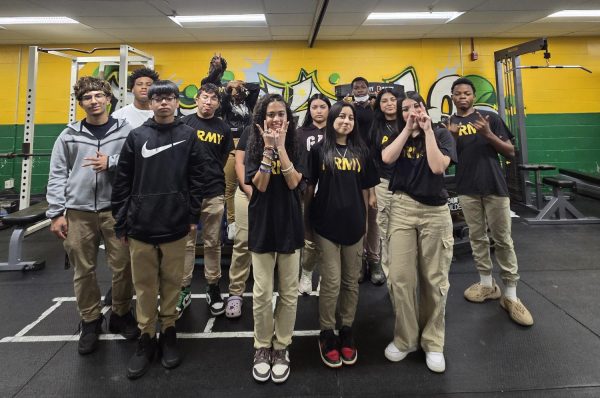NYC Mayor Bill de Blasio eliminating ‘talented and gifted program’; raises question if ‘accelerated programs’ are worth it

With NYC Public Schools eliminating talented and gifted programs, the question begs: should this be a nationwide removal?
It was recently announced that the Mayor of New York City, Bill de Blasio, will be putting an end to the ‘Talented and Gifted’ (TAG) program in all public schools. According to Spectrum News NY1, the main issue Mayor de Blasio and others have with the program is the fact that whether or not a student is admitted into the program is determined by a test that they take in the third grade.
“As a lifelong educator, what we all know is that no single test should be determining any child’s future,” said Chancellor Meisha Porter during an appearance on WNYC.
Rather than the TAG program, New York City students will instead have ‘accelerated instruction’ beginning in fall of 2022. The program is said to serve 26 times more students than the TAG program, serving up to 60,000 students. While many parents are on board with Mayor de Blasio’s decision, there are those who are completely opposed to him getting rid of the program and this whole situation has brought up many questions regarding the TAG program in general– a program that can be found across PGCPS elementary schools.
What is the tag program and what are the benefits of being in it?
The Talented and Gifted program (TAG) is a program in which students take their four core classes (English, Mathematics, Social Studies, Science) at an accelerated level. The program helps to better prepare students for highschool and college by challenging them academically and by teaching them problem solving skills. Students are tested in the third and sometimes second grade for the program.
In PGCPS schools specifically, students are tested in the second or third grade or they may apply through a lottery process that chooses them based on their address. The program puts emphasis on World Language courses such as Spanish, Chinese, and Italian, and in most cases, students are able to achieve a few of their highschool credits while in middle school through their advanced classes.
Is it fair to test kids for the program at such a young age?
Many have voiced their opinions on this topic and the majority seem to agree that it is unfair to test kids for the program at such a young age.
“There are so many more students who are gifted, who are talented, who are brilliant, who have special gifts, and I think this is the moment about creating opportunities for all students to demonstrate their powerful learning abilities and for teachers to really tap into those gifts,” said Porter in the WNYC interview.
Many see the TAG program as being inefficient in choosing students because there may be students in the fifth or sixth grade who have the capacity to be in the TAG program but aren’t allowed in because they weren’t at that level in the second or third grade.
Is the TAG program harmful for students?
The TAG program has been known to cause many issues among students. Entering the TAG program can make students feel pressure and it can divide students. Aaren (prefered not to give last name), a Junior at Parkdale has been in the program since the second grade.
He explained that in his middle school, the TAG and AVID (Advancement Via Individual Determination) kids would often get into fights, and when asked if he felt pressure due to the program he replied especially from his parents.
“The label ‘talented and gifted’ insinuated I was much more advanced than other kids,” Aaren explained. “And I was only in second grade when I joined the program. And now that I’m falling behind I feel like a burnout.” This is something that many students involved in the program tend to experience.
Accelerated instruction will continue to be implemented in the coming 2022-2023 and whether or not that program proves successful could determine whether or not other states follow suit in eliminating the TAG program.
Your donation will support the student journalists of Parkdale High School. Your contribution will allow us to cover our annual website hosting costs and publish some printed editions, as well.

Jada Adams is a junior at Parkdale High school and this is her first full year on staff. She looks forward to providing you with interesting and informative...






